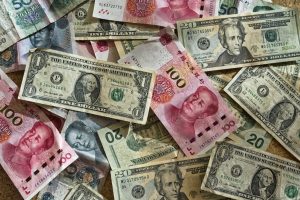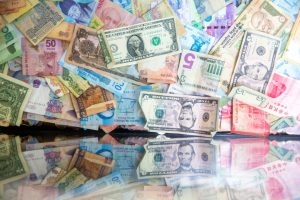In the world of Forex trading, the term “spread” is a common term used by traders to describe the difference between the bid price and the ask price of a currency pair. The spread is essentially the cost of trading, and it can have a significant impact on a trader’s profitability.
When a trader enters a trade on a Forex platform, they will see two prices: the bid price and the ask price. The bid price is the price at which the market is willing to buy the currency pair, while the ask price is the price at which the market is willing to sell the currency pair. The difference between these two prices is the spread.
The spread is usually expressed in pips, which is the smallest unit of measurement in Forex trading. For example, if the bid price for a currency pair is 1.2000 and the ask price is 1.2005, the spread would be 5 pips.
The spread is determined by a number of factors, including the liquidity of the currency pair, the volatility of the market, and the trading conditions set by the broker. The more liquid a currency pair is, the tighter the spread will be. In other words, there will be less of a difference between the bid and ask prices. On the other hand, if a currency pair is less liquid, the spread will be wider, meaning there will be a greater difference between the bid and ask prices.
Volatility can also impact the spread. When the market is volatile, the spread tends to widen as traders become more cautious and liquidity decreases. This is because the bid and ask prices can move quickly in response to market events, and traders may be less willing to take on risk.
The broker also plays a role in determining the spread. Some brokers offer fixed spreads, which means the spread remains the same regardless of market conditions. Other brokers offer variable spreads, which can change depending on market conditions. For example, if the market becomes more volatile, the spread may widen to reflect the increased risk.
The spread is an important factor to consider when trading Forex, as it can have a significant impact on a trader’s profitability. When a trader enters a trade, they will need to pay the spread as a cost of trading. This means that they will need to make a profit that is greater than the spread in order to be profitable.
For example, if a trader enters a trade with a 2-pip spread, they will need to make a profit of at least 3 pips in order to be profitable. If they only make a profit of 2 pips, they will break even, and if they make a profit of less than 2 pips, they will be in a losing trade.
Traders can minimize the impact of the spread by choosing a broker with tight spreads or by using strategies that take the spread into account. For example, some traders use scalping strategies, which involve making multiple trades that aim to capture small profits. This can be effective in markets with tight spreads, but may be less effective in markets with wider spreads.
In conclusion, the spread is an important concept in Forex trading that refers to the difference between the bid and ask prices of a currency pair. The spread can impact a trader’s profitability, and it is important to choose a broker with tight spreads and to use strategies that take the spread into account. By understanding the spread and its impact on trading, traders can make more informed decisions and improve their chances of success in the Forex market.





